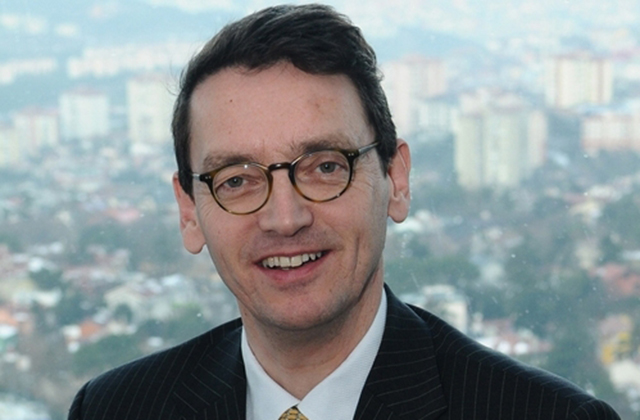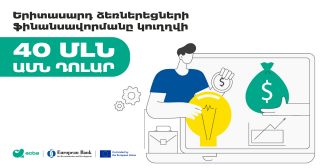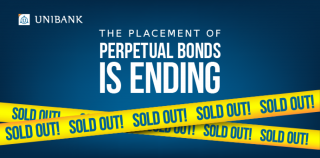
IFC Plans to Invest More than USD 100 Million to Support Private Companies in Armenia

Interview with Jan van Bilsen, IFC Regional Manager for the South Caucasus
– The range of spheres IFC invested in seems too narrow: banking, some energy and one mining project. Are there other spheres where you intend to invest in future? Jan van Bilsen, IFC Regional Manager for the South Caucasus:
– The private sector in Armenia has significant potential. In this fiscal year, IFC plans to invest more than $100 million to support private companies in Armenia, our largest annual program in the country. In addition to IFC’s investments in financial sector, we would like to increase our investments in key competitive non-financial sectors such as agribusiness, energy, and services. Since Armenia became an IFC member in 1995, IFC’s long-term investment commitments have totaled $340 million, including nearly $23 million mobilized from other lenders, financing 47 projects across a range of sectors, from financial markets and manufacturing to agribusiness, services, hydropower, and mining (as of December 31, 2015). IFC has also supported trade transactions through its trade finance program and implemented advisory projects focused on private sector development. A few examples: We recently committed a $50 million subordinated loan to Ameriabank to support its capital and boost its capacity to lend to local enterprises to help them grow and create jobs.
IFC was the first non-resident issuer of local-currency bonds in Armenia’s domestic capital markets. We issued the inaugural Armenian dram bond in 2013. Examples of our investments in non-financial sectors include IFC’s loan to Euroterm, a leading producer of Noyan fruit juices and preserves in Armenia; our support for an innovative, energy-efficient office building developed by the Property Development Company; and financing the Elite Plaza, an 18-story building constructed to meet the growing demand for high-quality office space in Yerevan. Last year, IFC bought a minority stake in ContourGlobal Hydro Cascade to help acquire, rehabilitate, and operate the Vorotan Hydropower Cascade, one of Armenia’s main power generating facilities, to strengthen the country’s power sector. We are continuously looking for opportunities to boost access to long-term funding for local enterprises to spur economic growth and job creation and reduce poverty.
– IFC has announced that it supports the bank consolidation process in Armenia. Won’t competition in the banking sector suffer if we have fewer banks in Armenia? Is it possible that we end up having monopolist banks in various directions of banking services?
– The current consolidation trend in the Armenian financial market is part of the Central Bank’s strategy to strengthen the banking sector. Larger banks, either through organic growth or consolidation, form the basis of an efficient and stable banking sector. In general, larger banks are more stable and efficient due to their diversified product line and ability to invest in modern banking technologies, and they also tend to have better access to capital markets. IFC supports Armenian banks, including their merger and acquisition efforts, so they can increase lending to private companies and spur growth.
– IFC is a shareholder of Lydian International. Its local subsidiary Geoteam plans to start Amulsar gold mine project. And you recently announced intention to invest in the construction of the mine. It’s one of the biggest investment projects for 2016. On the other hand, there is much critics that the economic growth is based only on mining. Do you think mining can be a sustainable base for economic development?
– IFC supports the extractives sector because, if it is well managed, natural resource wealth can be translated into sustainable economic development. When mining is a priority sector, it can fuel growth and help diversify economies. Benefits include substantial new government revenues through taxes and royalties, which can be invested in productive human and physical capital. Moreover, mining can anchor infrastructure development that otherwise might not have occurred and create direct and indirect positive impacts, including greater access to transportation and power, boosting productivity and growth. Mining offers the opportunity for indirect job creation through its supply chain: one job at the mine can support the creation of up to 20 or more indirect jobs. Thus, mining can boost the economy of local communities, especially those that are remote, offering opportunities for jobs, procurement from small business, and community investment. We encourage our clients to work with small businesses in the surrounding communities so that they are not dependent on the mine as a sole source of income but have business opportunities beyond the mining industry. IFC’s objective is to help countries like Armenia develop their resources in an environmentally and socially sustainable way to contribute to development, shared prosperity and poverty reduction.
– IFC performance standards are often cited as a guarantee that Amulsar will be a modern, environmentally well-managed mine. How do these standards guarantee environmental best practice for the projects you finance and will Amulsar comply with those?
– We believe it is possible to have responsible mining projects in any country and Armenia is no exception. We use IFC’s Performance Standards as the framework to identify and evaluate applicable environmental and social risks in every project we finance, regardless of industry or sector. Our clients, including those in the mining sector, use these standards when evaluating project impacts. Consequently, a project is developed in line with best international practices in terms of environmental, social, health, and safety concerns. Because our client’s management of these issues is fundamental to the success of the project, we monitor our project’s performance with these standards. This will be the case for the Amulsar mine, as it is with all our projects.
– RA government is predicting 2.2% GDP growth this year. What are your forecasts and which sectors of the economy have most potential to contribute to GDP growth?
– The global economy is still challenging and this impacts Europe and Central Asia, where the environment is extremely challenging. Countries in the region, including Armenia, are still adjusting to this new economic reality. However, more competitive sectors in Armenia, like agribusiness, mining, energy, and services, offer significant potential and can help underpin the economy while the government looks to develop higher value opportunities, as outlined in the Armenian Development Strategy. In this fragile environment, more can be done to improve the investment climate. The Armenia Investment Climate Reform Project, implemented by the World Bank Group’s Trade and Competitiveness Global Practice, continues to provide advice to the government on investment policy and inspections reforms. The project is built on IFC’s previous Investment Climate Reform Project (2011-2014), which helped the government of Armenia design and adopt reforms in taxes, trade logistics, inspections, and food safety.
By Babken Tunyan























